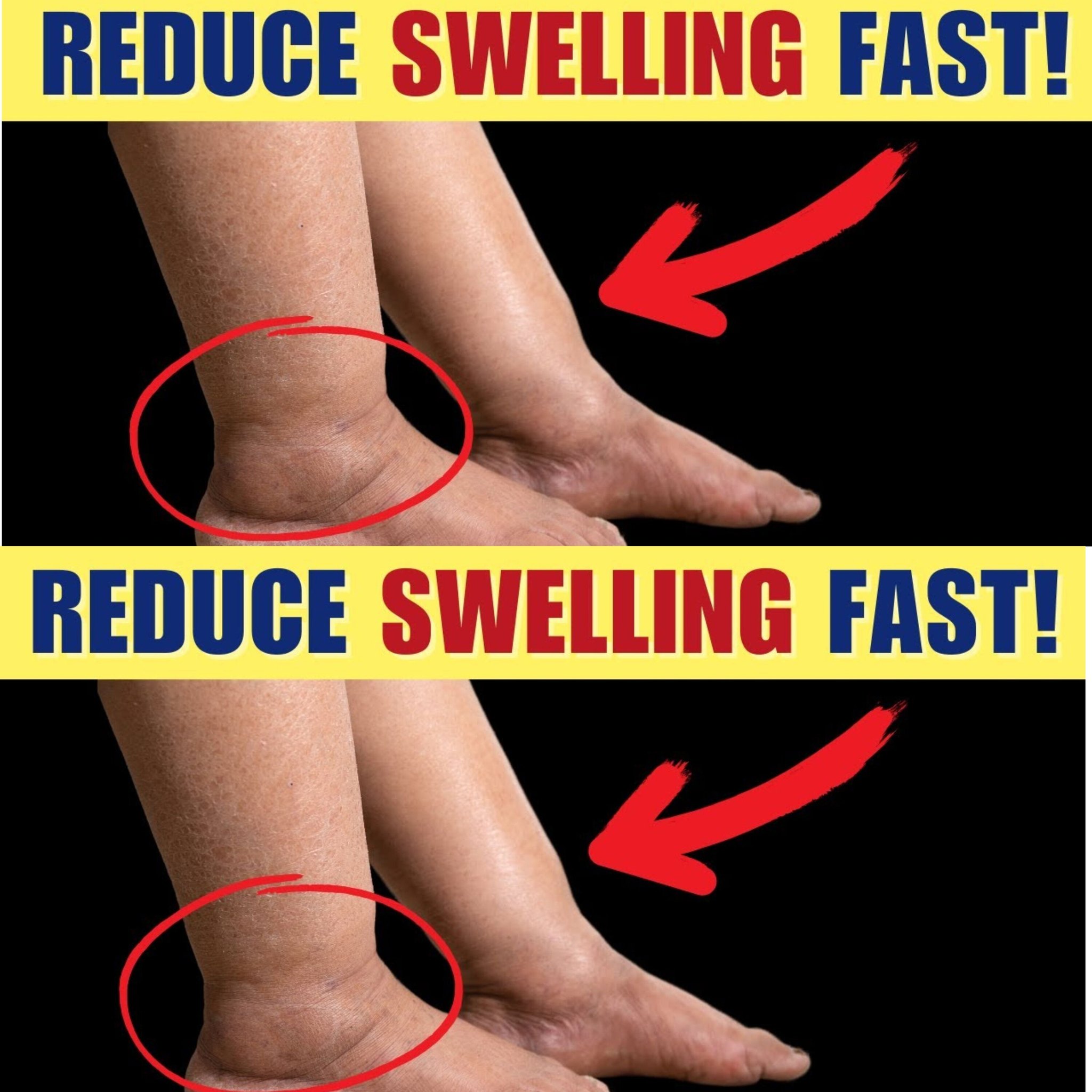Swelling in the legs and feet, also known as edema, can be caused by a variety of factors such as poor circulation, fluid retention, inflammation, or underlying health conditions. Certain vitamins can help reduce swelling by improving circulation, reducing inflammation, and supporting fluid balance in the body. Here are the best vitamins to consider for reducing swelling in the legs and feet:
1. Vitamin B6 (Pyridoxine)
Why It Helps: Vitamin B6 is essential for balancing fluid levels in the body and reducing water retention, which can contribute to swelling in the legs and feet. It acts as a natural diuretic, helping to flush excess fluid from the tissues and relieve edema.
Sources: Bananas, chickpeas, potatoes, salmon, poultry, and fortified cereals.
Benefit: Reduces water retention and fluid buildup, helping to minimize swelling.
2. Vitamin C
Why It Helps: Vitamin C is a powerful antioxidant that helps reduce inflammation and supports healthy blood vessels. It promotes collagen production, which strengthens blood vessels and improves circulation, potentially preventing swelling caused by poor circulation or inflammation.
Sources: Citrus fruits (oranges, lemons), strawberries, bell peppers, broccoli, and spinach.
Benefit: Reduces inflammation and strengthens blood vessels, improving circulation and preventing swelling.
3. Vitamin E
Why It Helps: Vitamin E is known for its ability to improve circulation and reduce inflammation, both of which are crucial in preventing and treating swelling in the legs and feet. It helps maintain healthy blood vessels and can reduce the pooling of blood that leads to edema.
Sources: Almonds, sunflower seeds, spinach, avocado, and olive oil.
Benefit: Enhances circulation and reduces inflammation, promoting the reduction of swelling.
4. Vitamin D
Why It Helps: Vitamin D plays a key role in reducing inflammation and maintaining healthy blood vessels. Deficiency in vitamin D has been linked to poor circulation and an increased risk of developing swelling due to fluid retention or inflammation.
Sources: Sunlight exposure, fatty fish (salmon, tuna), fortified dairy products, and egg yolks.
Benefit: Reduces inflammation and supports healthy blood flow, helping to reduce swelling.
5. Vitamin K
Why It Helps: Vitamin K is essential for healthy blood clotting and circulation. It helps strengthen blood vessels and capillaries, reducing the risk of fluid leakage into tissues that can cause swelling. It is especially helpful in reducing swelling associated with varicose veins and circulatory issues.
Sources: Leafy greens (kale, spinach, broccoli), Brussels sprouts, and green beans.
Benefit: Strengthens blood vessels and reduces fluid retention, preventing swelling.
6. Magnesium
Why It Helps: Although technically a mineral, magnesium is crucial for reducing water retention and inflammation. Magnesium helps regulate fluid balance in the body and promotes healthy blood circulation, making it effective for preventing and reducing swelling in the legs and feet.
Sources: Almonds, pumpkin seeds, spinach, black beans, and avocados.
Benefit: Acts as a natural diuretic and reduces fluid retention, promoting healthy circulation and reducing swelling.
7. Omega-3 Fatty Acids (EPA and DHA)
ADVERTISEMENT
